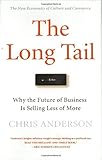 Under the slogan “Think“, Dubai’s Knowledge Village will be witnessing a joint event by GadgetsArabia, Swalif Soft, and the Emirates Internet Group, on August 7th 2008, aimed towards pushing and encouraging development in the Arab internet industry, by bring together a number of high profile speakers from some leading Arab web2.0 companies.
Under the slogan “Think“, Dubai’s Knowledge Village will be witnessing a joint event by GadgetsArabia, Swalif Soft, and the Emirates Internet Group, on August 7th 2008, aimed towards pushing and encouraging development in the Arab internet industry, by bring together a number of high profile speakers from some leading Arab web2.0 companies.
Some representatives from Google Middle East will be attending the event, as well as people from Arab internet companies and prominent Arab websites and portals. Members of the press and media will be attending too.
Event Location:
United Arab Emirates
Dubai
Knowledge Village
Conference room, block 1, 1st floor
Event programme:
- Welcome & Opening Note
Speaker: Ahmed Gabr, Editor of GadgetsArabia
Time: 5 minutes - How do I attract big advertisers to my site?
Speaker: Tariq Al-Asiri, CEO or Argaam.com
Time: 15-20 minutes - Open discussion on online advertising
Q&A with Tariq Al-Asiri; moderated by Ahmed Gabr
Time: 20-30 minutes - How do you launch a web2.0 project, and what are the difficulties and challenges you could face?
Speaker: from TootCorp
Time: 15 minutes - From idea to implementation in web2.0
(Use of APIs, Usability, Productivity)
Speaker: Habib Haddad, Co-Founder of Yamli.com
Time: 15 minutes - Web2.0 success story
Speaker: Rida Al-Barazi, of SpinBits.com
Time: 15 minutes - Open discussion on web2.0 and web development
Q&A with all speakers, moderated by Ahmed Gabr - Closing note
The event is public, open to everyone and free.



